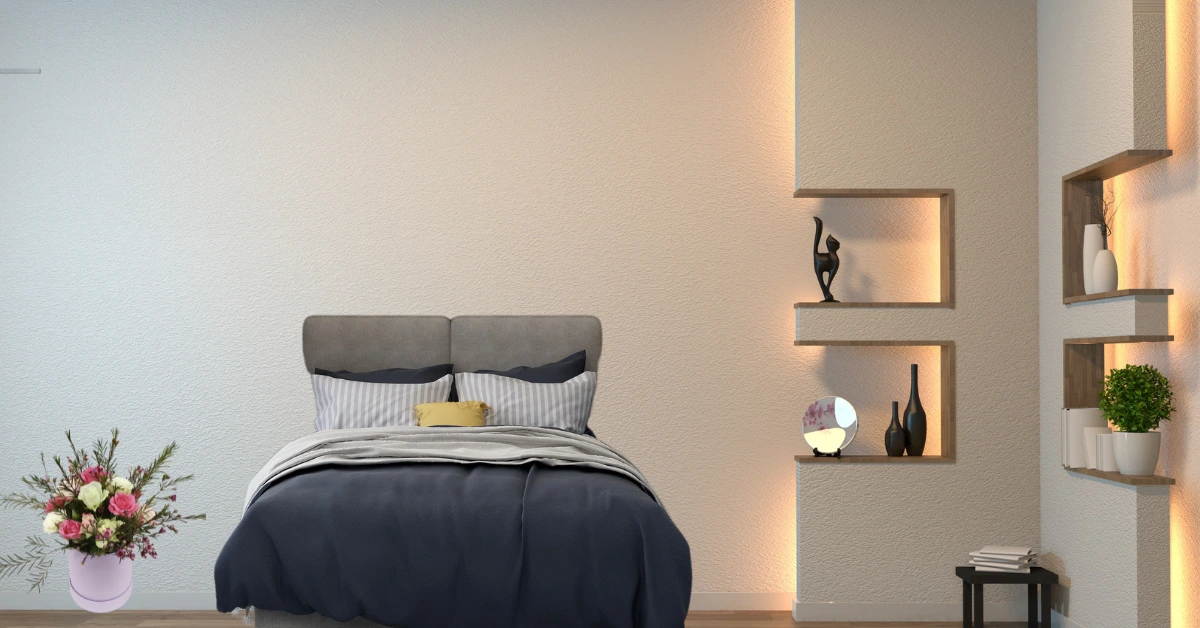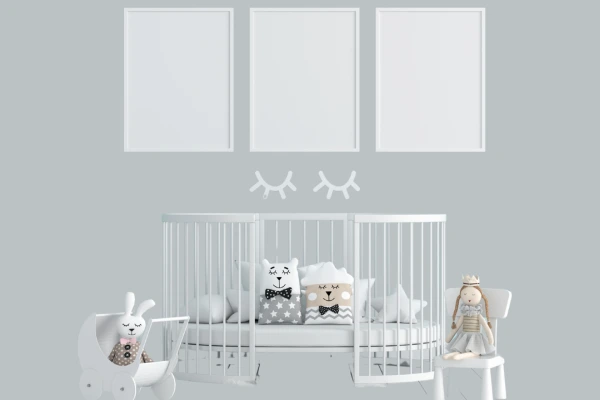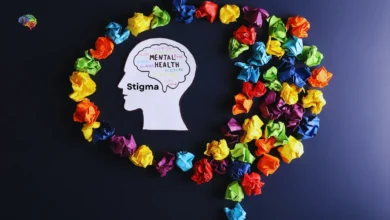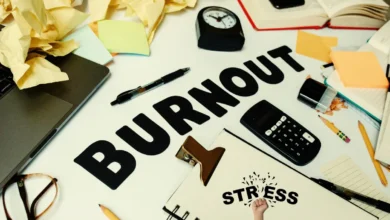Best Sleep Hygiene Practices for a Restful Night

Struggling to fall asleep at night? You’re not alone. Many people deal with restless nights due to stress, overthinking, and poor sleep routines. But the good news is that better sleep hygiene can make a huge difference. By adopting healthy sleep habits, like maintaining a consistent bedtime and creating a relaxing nighttime routine, you can enjoy deeper, more restful sleep. Ready to wake up feeling refreshed? Let’s explore the best practices to improve your sleep quality!
But don’t worry, you’re not alone. Many people struggle with overthinking at night, healthy sleep habits, and an inconsistent nighttime routine. The good news? A few simple changes in your daily habits can help you fall asleep faster, sleep deeper, and wake up refreshed.
In this guide, we’ll explore the best sleep hygiene practices to help you improve your sleep quality and transform your nights from restless tossing to peaceful snoozing.
Stick to a Consistent Sleep Schedule
Your circadian rhythm (a fancy way of saying your body’s internal clock) thrives on routine. If you keep switching up your bedtime, your body gets confused—kind of like when you suddenly change the WiFi password and expect all your devices to work seamlessly.
- Go to bed and wake up at the same time every day—even on weekends. Yes, even if Netflix drops a new season of your favorite show.
- Aim for 7-9 hours of sleep—the sweet spot for most adults.
- Avoid long daytime naps (anything over 30 minutes can leave you feeling groggy and make nighttime sleep harder).
Create a Sleep-Friendly Bedroom – Best Sleep Hygiene Practices
If your bedroom is as inviting as a waiting room at the DMV, no wonder you can’t sleep. A key part of best sleep hygiene practices is creating an environment that promotes relaxation. Think of your bedroom as a luxurious sleep sanctuary—cozy, dark, and quiet.
- Keep your bedroom dark – Blackout curtains or an eye mask work wonders.
- Lower the temperature – 18-22°C (65-72°F) is ideal for most people.
- Invest in a good mattress and pillow – Your spine will thank you.
- Reduce noise – Use earplugs or a white noise machine if needed.
By optimizing your sleep environment, you’re taking a crucial step toward better sleep hygiene and uninterrupted rest.
Wind Down with a Relaxing Nighttime Routine
Imagine telling a hyperactive toddler to suddenly go to bed. It doesn’t work, right? Your brain is the same—it needs a wind-down routine. Think of it as gently landing an airplane rather than nosediving into bed.
- Try meditation or deep breathing – It helps reduce sleep anxiety.
- Read a physical book – Preferably something light (thrillers don’t count).
- Take a warm bath – It signals your body that it’s time to sleep.
- Listen to calming music or nature sounds – It helps relax the mind.

Avoid Blue Light Before Bed – Best Sleep Hygiene Practices
Scrolling through Instagram at midnight? Guilty. But blue light from screens suppresses melatonin (the sleep hormone), making it harder to fall asleep—like drinking an espresso right before bedtime.
- Turn off screens at least 1 hour before bed.
- Use “night mode” or blue light filter apps if screen time is unavoidable.
- Swap your phone for a good old-fashioned book or audiobook.
Watch What You Eat and Drink Before Bed
Your nighttime snack choices might be the reason you’re tossing and turning—kind of like fueling a car with soda and expecting it to run smoothly.
- Avoid caffeine after 3 PM – That means no late-night coffee, tea, or energy drinks.
- Limit alcohol and heavy meals – They disrupt Healthy Sleep Habits.
- Try sleep-friendly drinks like chamomile tea or warm milk.
Get Sunlight During the Day and Move Your Body
Your body clock takes cues from light and movement. A sedentary, indoor lifestyle can mess with your sleep cycle—like trying to charge your phone without plugging it in.
- Spend at least 30 minutes outside in natural daylight.
- Exercise regularly – Yoga, walking, or even stretching helps.
- Avoid intense workouts late at night – They can keep you wired.
Tame Your Racing Thoughts
If overthinking at night keeps you awake, you need a plan to shut down your mental chatter. Your brain is like a browser with too many tabs open—time to close a few!
- Write it out – Keep a journal to dump all your thoughts before bed.
- Practice gratitude – Instead of thinking about stress, list three good things that happened today.
- Try guided meditation apps – They help your mind relax instead of running a marathon.
- If you can’t sleep after 20 minutes, get out of bed. Do something boring (like reading the instruction manual of your microwave), then try again.

Embrace Humble Confidence in Your Sleep Routine
Sometimes, we let perfectionism and self-doubt sabotage our sleep. We stress about not getting enough rest, overanalyze our habits, and compare our sleep struggles to others’. Instead, approach your sleep journey with humble confidence—like a seasoned chef who trusts their cooking instincts but is still open to trying new recipes.
- Trust your progress – Small changes add up over time.
- Don’t obsess over the “perfect” sleep routine – Adapt and adjust as needed.
- Stay patient and kind to yourself – Healthy sleep habits is a journey, not a race.
Cultural References and Sleep Habits
Sleep habits vary widely across cultures, and understanding them can provide insights into better sleep hygiene.
- The Spanish Siesta – In Spain, the tradition of taking a short nap (siesta) in the afternoon allows for a midday recharge, showing the importance of resting when needed.
- Japanese Inemuri – In Japan, “inemuri” (sleeping while present) is socially acceptable and reflects the idea that rest can be integrated into daily life rather than limited to nighttime.
- Scandinavian Fresh Air Sleep – In Nordic countries, it’s common for babies to nap outside, even in cold weather, as fresh air is believed to improve sleep quality.
- Middle Eastern Tea Rituals – Herbal teas, such as chamomile or valerian root, are used as natural sleep aids in many cultures to promote relaxation before bed.
- Exploring cultural sleep practices can help us rethink and optimize our own sleep routines in ways that suit our lifestyle and biological needs.
Final Thoughts
Improving Best Sleep Hygiene Practices isn’t about perfection. It’s about small, consistent changes that help you sleep better, reduce anxiety, and wake up feeling like a functional human (instead of a zombie who hit snooze 15 times).




Hey, anyone tried downloading from K1gameapk? Thinking about giving it a whirl. Let me know if it’s any good! k1gameapk
Alright guys, trying out yolobettingsite. Heard good things about the odds. Let’s see if I can make some smart bets and come out on top. Wish me luck! More info here: yolobettingsite
Just logged into yy567gamelogin and ready to play! The interface looks pretty clean and user-friendly. Hope the games are just as good. Game on! Find it here: yy567gamelogin
Thinking about going VIP with yy567gamevip. Wonder if the perks are worth it. Anyone have experience with it? Let me know! Check it out here: yy567gamevip
Haha, spotted a hilarious mexivergasmeme online the other day. If you need a good laugh, definitely search it up. Some really funny stuff there. mexivergasmeme
PHWWcasino, jumped in to see what’s up! Okay selection and no big issues here to report, happy to see it functions as expected. A good option if you wanna try: phwwcasino
PHGreatCasino, tried it out. Nothing mind-blowing, but not bad either! You may find your next favourite game there. Try it here if you like, mate: phgreatcasino
55G Casino is pretty decent! They’ve got a solid selection of games, and the platform runs smoothly. Give them a try at 55gcasino. You might find your new favorite game!
Alright, time to check out betanorappi. Not bad! Quick payouts and decent enough odds. Could be worth a look if you’re scouting out the field. Find them here: betanorappi
WinHQPH, eh? Checked it out and the user interface looks clean and easy to navigate and also it’s quite smooth so it wouldn’t hinder your experience. Give it a whirl: winhqph
I was looking through some of your posts on this site and I think this web site is rattling instructive! Retain putting up.